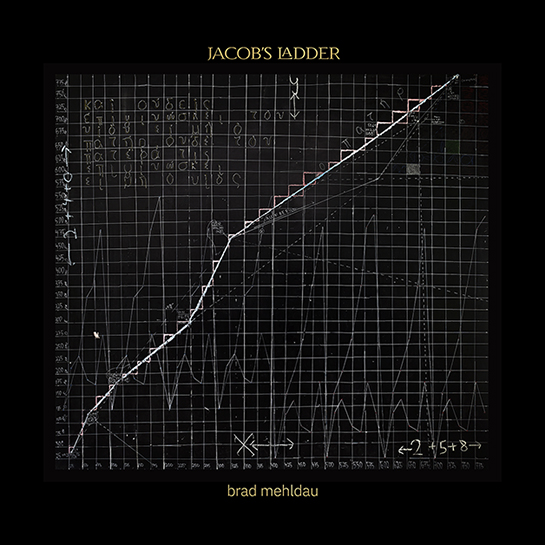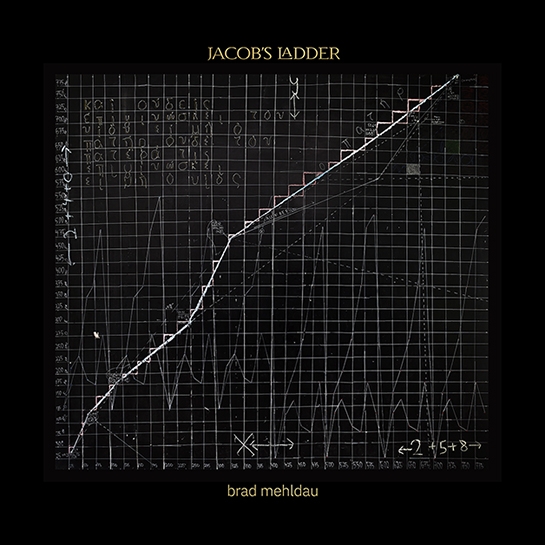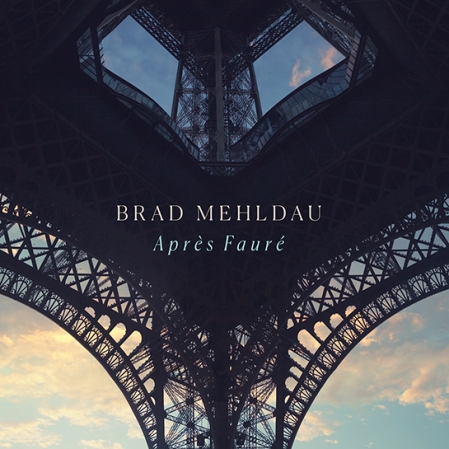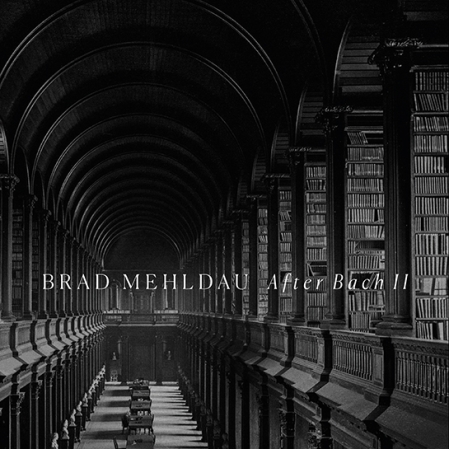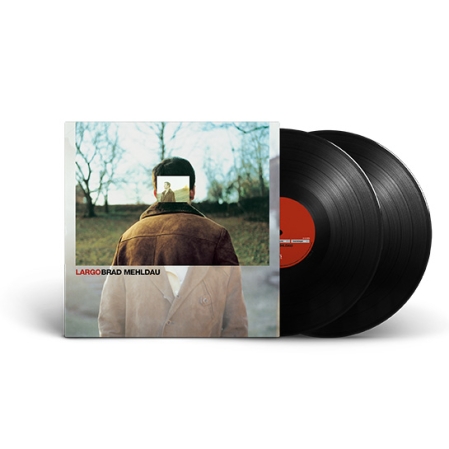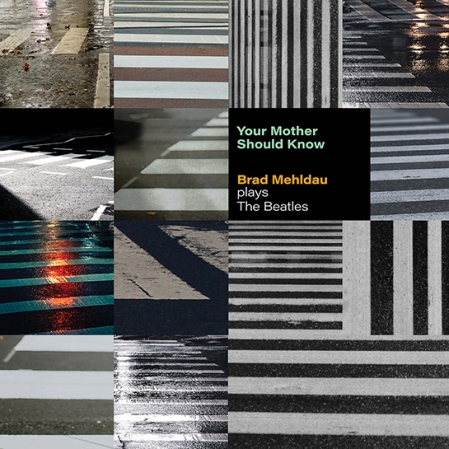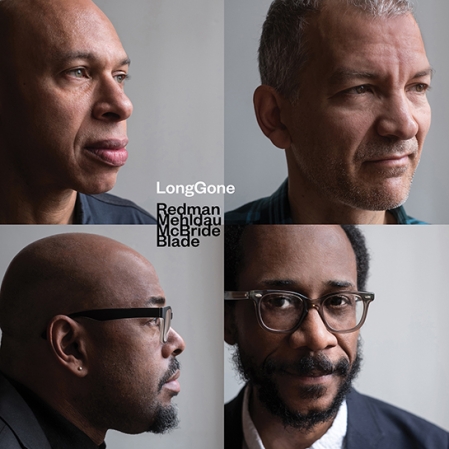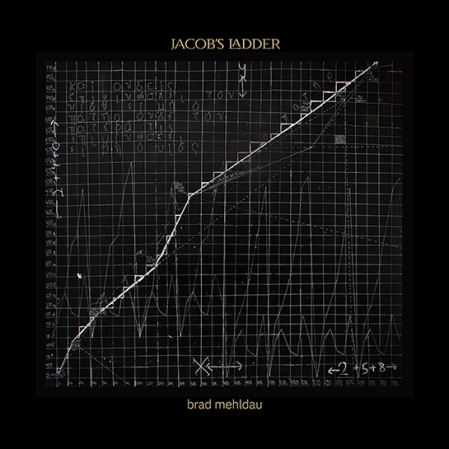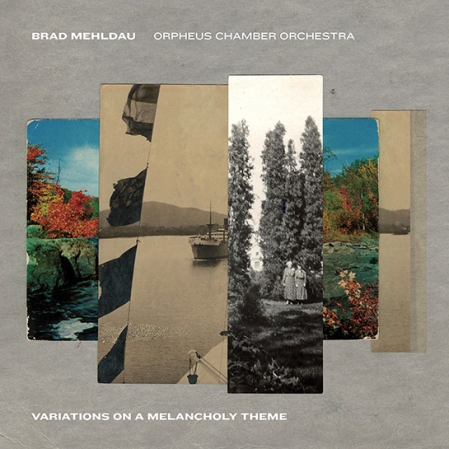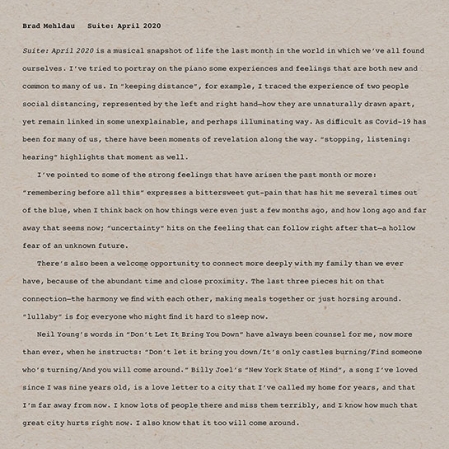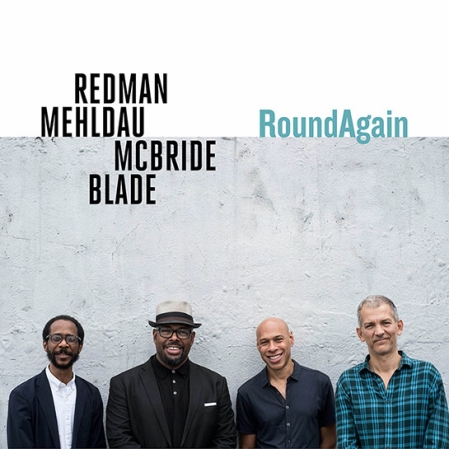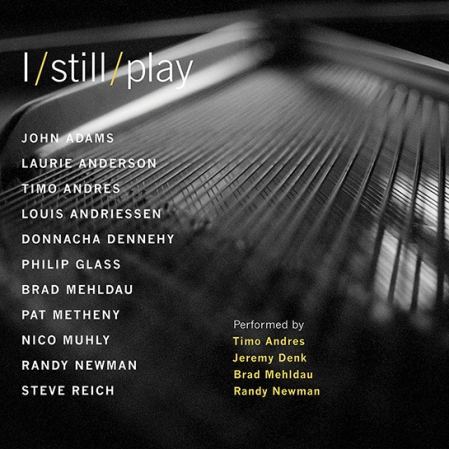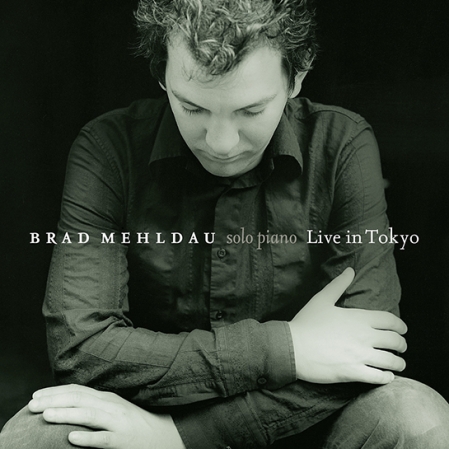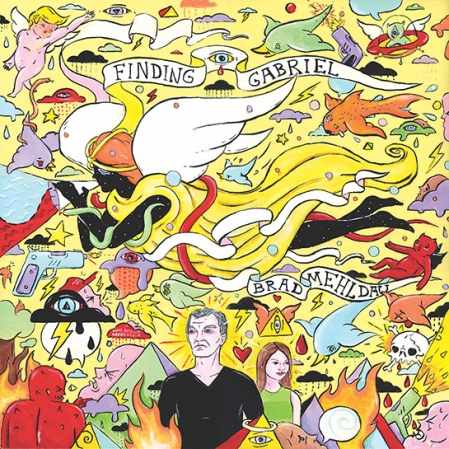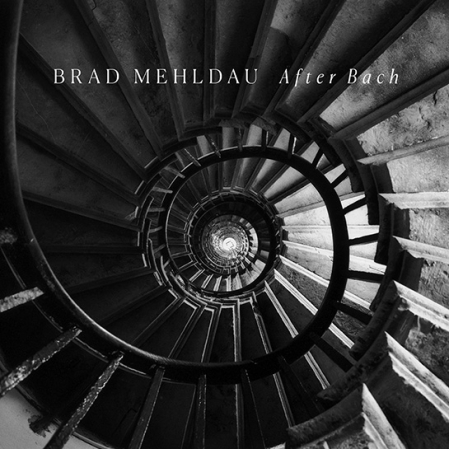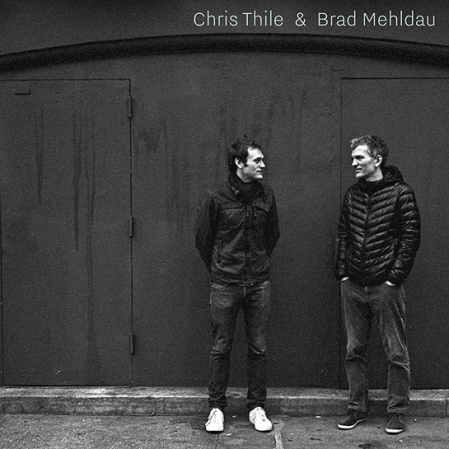Brad Mehldau’s album Jacob’s Ladder features new music that reflects on scripture and the search for God through music inspired by the prog rock he loved as a young adolescent—his gateway to the fusion that eventually led to his discovery of jazz. Featured musicians on the album include label mates Chris Thile and Cécile McLorin Salvant, as well as Mark Guiliana, Becca Stevens, Joel Frahm, and others. Mojo calls it "a kaleidoscopic affair, where baroque prog-rock edifices are juxtaposed with clouds of ethereal choirs, dreamy piano interludes, and squalls of free jazz-style clarinet. Skillfully weaving these elements into storytelling sound collages, Mehldau takes the listener on a memorable musical journey." Grammy Nominee for Best Contemporary Instrumental Album.
Grammy Nominee for Best Contemporary Instrumental Album
Nonesuch Records released Brad Mehldau’s Jacob’s Ladder on March 18, 2022 on CD and digital; a vinyl LP version is due June 17. The album features new music that reflects on scripture and the search for God through music inspired by the prog rock Mehldau loved as a young adolescent, which was his gateway to the fusion that eventually led to his discovery of jazz. Featured musicians on the album include Mehldau’s label mates Chris Thile and Cécile McLorin Salvant, as well as Mark Guiliana, Becca Stevens, Joel Frahm, and others.
Mehldau explains, “We are born close to God, and as we mature, we invariably move further and further away from Him on account of our ego. Jacob’s Ladder begins at that place closer to God with the voice of child, and then moves into the world of action. God is always there, but in our discovery and conquest, and all the joys and sorrows they bring, we may lose sight of him. He sets a ladder before us though, like in Jacob’s dream, and we climb towards him, to find reconciliation with ourselves, to stitch up all those worldly wounds and finally heal. The record ends with my vision of heaven—once again as a child, His child, in eternal grace, in ecstasy.
“The musical conduit on the record is prog,” Mehldau continues. “Prog—progressive rock—was the music of my childhood, before I discovered jazz. It matched the fantasy and science fiction books I read from C.S. Lewis, Madeleine L’Engle and others at that time, aged ten through twelve. It was my gateway to the fusion of Miles Davis, Weather Report, Mahavishnu Orchestra and other groups, which in turn was the gateway to more jazz. Jazz shared with prog a broader expressive scope and larger-scale ambitions than the rock music I had known already.
“The prog from Rush, Gentle Giant, and Emerson, Lake and Palmer here only hints at the genre’s conceptual, compositional and emotional range. These bands and others have continued to influence newer groups that bring prog impulses into the arena of hard rock and screaming math metal, like Periphery, whose music is included here, and also inspired the screaming vocals on ‘Herr und Knecht.’ I tried to avoid a direct tribute approach to all the songs, and opted in some cases for excerpts, or reworking of themes.”
Although Brad Mehldau is best known as a jazz composer and improviser, he has made several albums that fall outside of the mainstream jazz genre, including his 2001 Largo, produced by Jon Brion. Wide-ranging in texture and big in scale, it features woodwind or brass ensembles are on several tracks, as well as a heavy emphasis on powerful drums. In 2010, Nonesuch released his second collaboration with Brion, Highway Rider, which includes performances by Mehldau’s trio—drummer Jeff Ballard and bassist Larry Grenadier—as well as drummer Matt Chamberlain, saxophonist Joshua Redman, and a chamber orchestra led by Dan Coleman. Mehldau also orchestrated and arranged the album’s fifteen pieces for the ensemble.
Mehldau’s 2014 collaboration with Mark Guiliana, Mehliana: Taming the Dragon, featured Mehldau on Fender Rhodes and synthesizers and Guiliana on drums and effects, playing twelve original tunes—six by the duo and six by Mehldau. His 2019 album Finding Gabriel featured performances by him on piano, synthesizers, percussion, and Fender Rhodes, as well as vocals. Guest musicians included Ambrose Akinmusire, Sara Caswell, Kurt Elling, Joel Frahm, Mark Guiliana, Gabriel Kahane, and Becca Stevens, among others.
PRODUCTION CREDITS
Produced by Brad Mehldau and John Davis
Recorded, Engineered, and Mixed by John Davis at The Bunker Studios in Brooklyn and Paul Pouwer at Power Sound Studio in Amsterdam, between April 2020 and January 2021
Mark Guliana’s drums recorded at home in Los Angeles
Becca Stevens’s vocals on “Jacob’s Ladder I,” “Jacob’s Ladder III,” and “Heaven: II – Life Seeker” recorded at home in Brooklyn
Safia McKinney-Askeur’s vocals recorded at Gecko Studios in Wivenhoe, England by Jasper Trim, Mike Trim and Oliver Stack
Timothy Hill’s vocals recorded at Area 52 Studios in Saugerties, NY by Dave Cook
Cover Art by Brad Mehldau
Photography by Sofie Knijff
Graphic Design by Lawrence Azerrad for LADdesign Inc.
MUSICIANS
Brad Mehldau, Steinway D grand piano (1, 3, 4, 8, 10, 12), glockenspiel (1), Akai S-950 Sampler (1), Korg MS-20 synthesizer (1, 5, 7, 8, 10-12), Yamaha CP-80 (2, 7), Moog modular synthesizer (2, 3, 6, 7), Emu Emulator II (2, 4, 5, 7), Dave Smith OB-6 (2, 6, 8), Wurlitzer electric piano (2), Therevox (2), Steinway C grand piano (2, 5, 7, 10, 12), Mellotron (3), Fender Rhodes (4), harmonium (4), Moog Little Phatty synthesizer (4, 7, 10), Hammond organ bass pedals (4), xylophone (4), drums (4, 8, 12), tambourine (4), vocals (4), Musser Ampliceleste (5, 12), background vocals (5, 12), Dave Smith Prophet 08 (7), Roland Juno 60 (7, 12), additional vocals (7), English vocals (8), tambourine (8), spoken word (9, 11), Mellotron Mk VI (10), Yamaha Upright Piano (10), sleigh bells (10), Musser Ampliceleste (10), tenor voice (11), wind machine (11), orchestral bells (11), Fender Rhodes, Dave Smith Pro2 (12), Crumar Performer (12), Casio Casiotone 101 (12), shaker (12)
Luca van den Bossche, treble voice (1, 7, 11), spoken word (9), vocals (12)
Mark Guiliana, drums (1, 2, 5, 7, 10, 12), electronic drums (10)
John Davis, Elektron Octatrack (1)
Joel Frahm, soprano saxophone (2, 7), tenor saxophone (7)
Tobias Bader, screaming metal Hegel vocals (2)
Becca Stevens, vocals (3, 5), additional vocals (2, 12), spoken word (9), soprano voice (11)
Tinkerbell, additional vocals (2), high voice at end (8)
Lavinia Meijer, harp (3, 12)
John Davis, drum programming (4, 5, 7)
Motomi Igrashi-de Jong, lirone (5, 10)
Chris Thile, vocals (7), mandolin (7)
Pedro Martins, Portuguese vocals (8), acoustic guitar (8, 12), electric guitar (12)
Safia McKinney-Askeur spoken word (9), vocals (10, 12), alto voice (11)
Timothy Hill spoken word (9), bass (11)
Damien Mehldau, spoken word (9)
Joris Roelofs, bass clarinet (11)
Fleurine, spoken word (11)
Cécile McLorin Salvant, opening wordless vocals (12)
Paul Pouwer, subby heartbeat bass drum (12)
